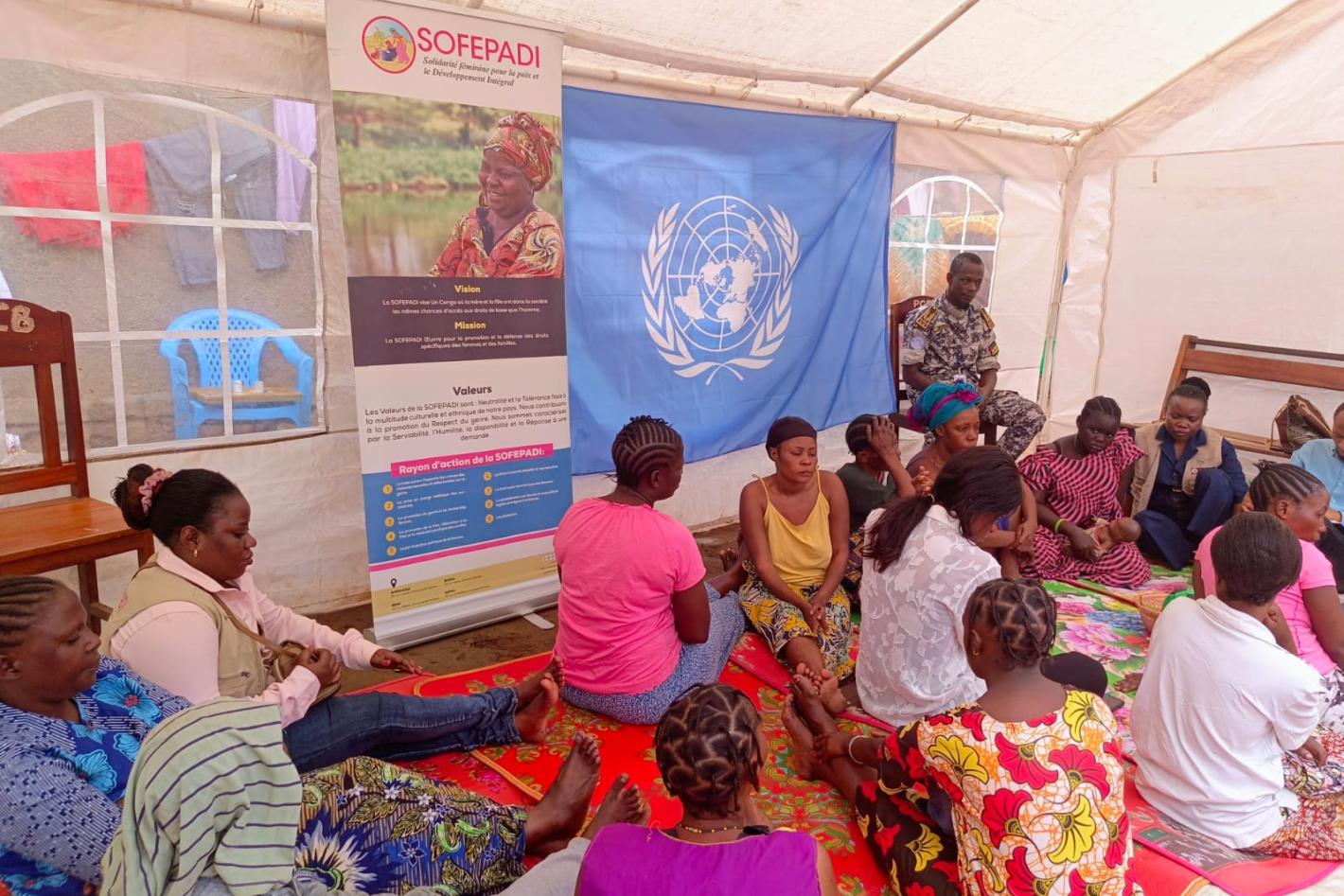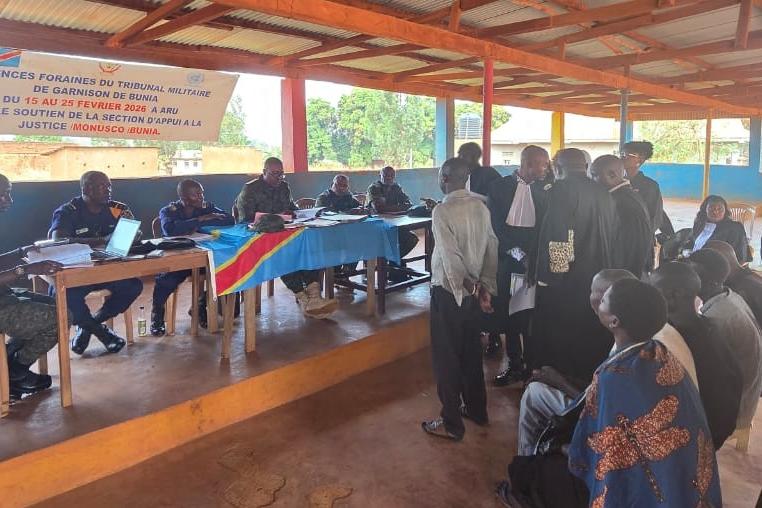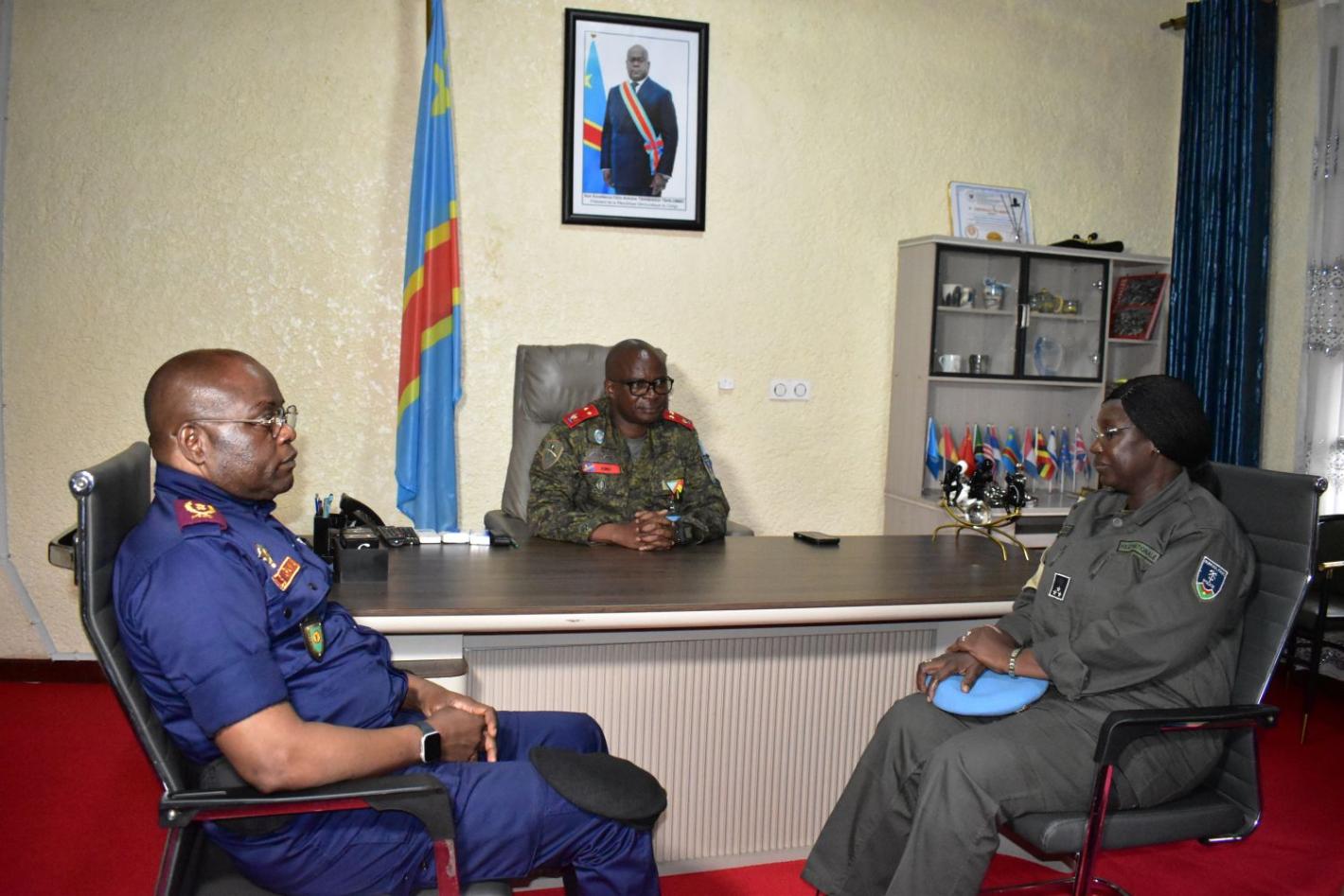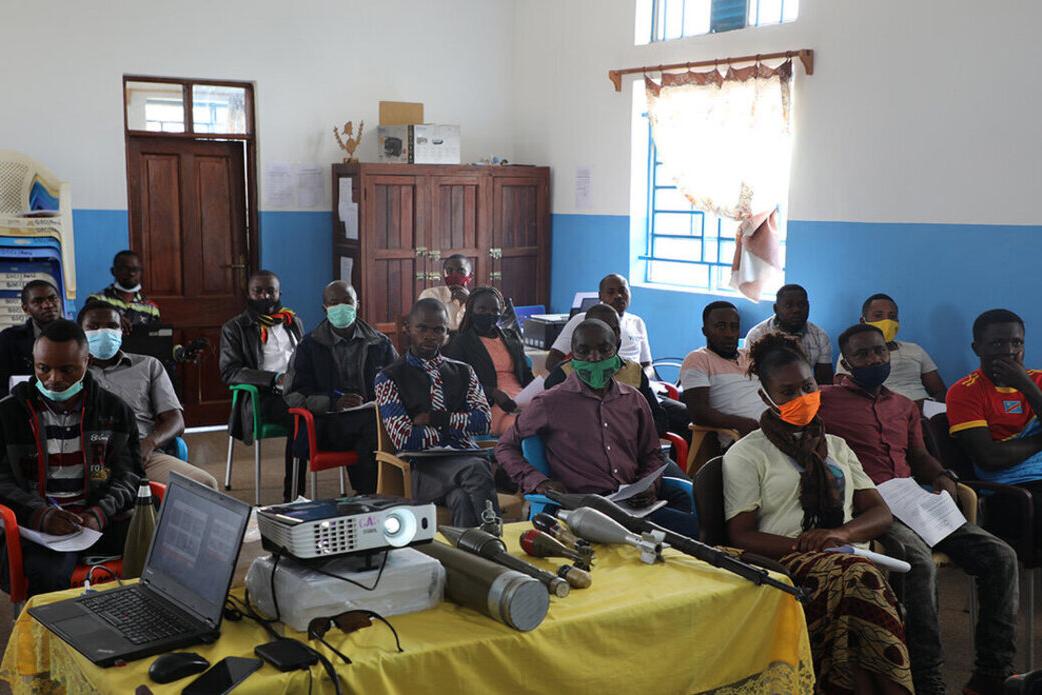Goma, 26 February 2013 – A joint protection team, composed of seven staff members of the United Nations Organization Stabilization Mission in the Democratic Republic of Congo (MONUSCO) and two partners from the NGO Search for Common Ground, visited Pinga, a locality northwest of Goma, to assess the security conditions of the local population. The team interacted with the local population and civil society representatives, as well as international NGOs, who gave testimonies commending MONUSCO for contributing to the improvement of a situation long characterized by regular threats and other dangers from armed groups.
Control over Pinga changed hands six times in 2012 alone. Since 12 November 2012, the locality has been under the control of the Maï-Maï Nduma Defense of Congo (NDC) rebel group led by Cheka. It has seen repeated armed clashes, which has caused nearly all Congolese State representatives and those of international NGOs to leave the town. As the visiting team found, those still present in the area were staff working for the Health Zone of Pinga Central Bureau (BCZS) and the charity Médecins Sans Frontières (MSF).
The joint protection team met with civil society representatives who expressed their appreciation for the presence of MONUSCO, which they described as "encouraging, respectful and gratifying".
Visibly moved by these words of appreciation, the team leader said in response: "It is always gratifying to hear members of the population pay tribute to the work of MONUSCO. It is heart-warming."
Despite these expressions of praise, one remaining concern needed to be borne in mind, concerning the geo-ethnic structure of the locality. This means that, in order to provide equal protection to all communities, the MONUSCO battalion in charge of protection in this part of Nord Kivu must see to it they show the same dynamism in serving the population groups who are living in more remote areas and who are exposed to all kinds of abuses.
Jonathan Lorillard / MONUSCO





